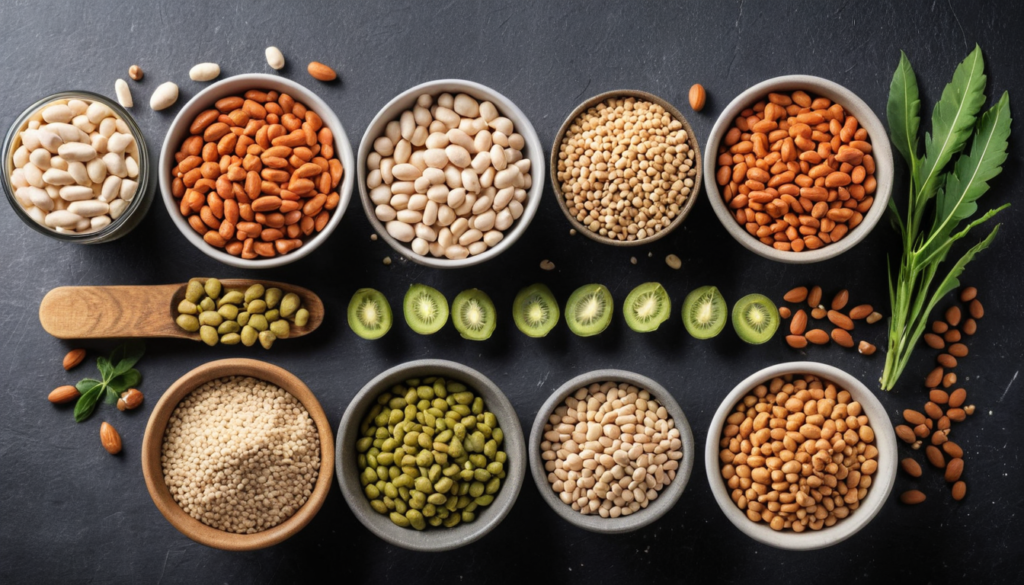Maintaining a healthy diet can often feel like a challenge, especially when cravings come into play. Whether it’s that late-night chocolate fix or an afternoon urge for a sugary snack, managing cravings is essential for a balanced diet. In this article, we’ll explore natural methods to manage cravings while helping you stay on track with your health goals.
Understanding Cravings
Cravings can be defined as strong desires for specific foods, often high in sugar, fat, or salt. They can stem from various factors, including:
- Emotional triggers such as stress or boredom
- Biological responses to hormones or nutrients
- Habitual patterns of eating
Natural Ways to Manage Cravings
Here are several effective strategies to help manage cravings naturally:
1. Stay Hydrated
Often, our bodies confuse thirst with hunger. Staying adequately hydrated can help reduce cravings. Aim to drink at least 8-10 glasses of water daily.
2. Include Fiber-Rich Foods
Fiber slows down digestion and helps you feel fuller for longer. Incorporating fiber-rich foods into your diet can reduce the frequency of cravings. Some great sources of fiber include:
- Fruits (e.g., apples, bananas, berries)
- Vegetables (e.g., broccoli, carrots, lentils)
- Whole grains (e.g., oatmeal, quinoa, brown rice)
3. Regular Meal Timing
Eating at regular intervals prevents your blood sugar levels from dropping, which can trigger cravings. Try to establish a consistent meal schedule, including healthy snacks.
4. Mindful Eating
Practice mindful eating by focusing on your meal. Pay attention to flavors, textures, and the experience of eating. This can help you feel more satisfied and reduce the urge to snack unnecessarily.
5. Incorporate Healthy Fats
Healthy fats provide satiety and can help you feel full. Include foods rich in healthy fats, such as:
- Avocados
- Nuts and seeds
- Olive oil
- Fatty fish (e.g., salmon, mackerel)
6. Manage Stress Levels
Stress often leads to emotional eating and cravings. Engage in stress-relief activities such as yoga, meditation, or even simple breathing exercises to combat cravings.
7. Get Enough Sleep
Lack of sleep can lead to hormonal imbalances that increase cravings. Aim for at least 7-9 hours of quality sleep each night to help regulate your appetite.
8. Find Alternative Snacks
If you find yourself craving unhealthy snacks, consider healthier alternatives. Here are some ideas:
| Craving | Healthier Alternative |
|---|---|
| Chips | Air-popped popcorn or baked kale chips |
| Ice Cream | Frozen yogurt or a banana split |
| Chocolate | Dark chocolate (70% cacao or higher) |
| Soda | Flavored sparkling water |
Building a Balanced Diet
A balanced diet is crucial for managing cravings and supporting overall health. Here are key elements to include:
- Fruits and vegetables: Aim for half your plate to be filled with a variety of colorful fruits and vegetables.
- Proteins: Include lean protein sources like chicken, beans, tofu, or fish in your meals.
- Whole grains: Opt for whole grains instead of refined grains to increase nutrients and fiber intake.
FAQs
What are the main triggers for cravings?
Common triggers include emotional stress, imbalanced diets, hormonal fluctuations, and habitual eating patterns.
How can I differentiate between hunger and cravings?
True hunger tends to be gradual and felt in the stomach, while cravings are sudden and focused on specific foods.
Are cravings always unhealthy?
Not necessarily. Sometimes cravings can signal a nutrient deficiency. For instance, a craving for chocolate may indicate a need for magnesium.
How can I resist cravings in social situations?
Plan ahead by eating a healthy meal or snack before events, and keep in mind that it’s okay to indulge occasionally in moderation.
Is it normal to have cravings?
Yes, cravings are normal and can occur for a variety of reasons. Managing them healthily is key.
Conclusion
Cravings don’t have to derail your diet. By staying hydrated, eating a balanced diet, and managing stress, you can effectively manage your cravings and maintain healthy eating habits. Remember, it’s about balance—allowing yourself occasional treats while focusing on nourishing yourself with wholesome foods can help you achieve your dietary goals.



